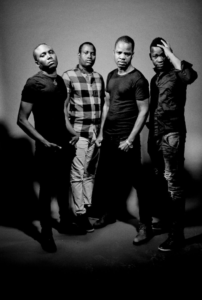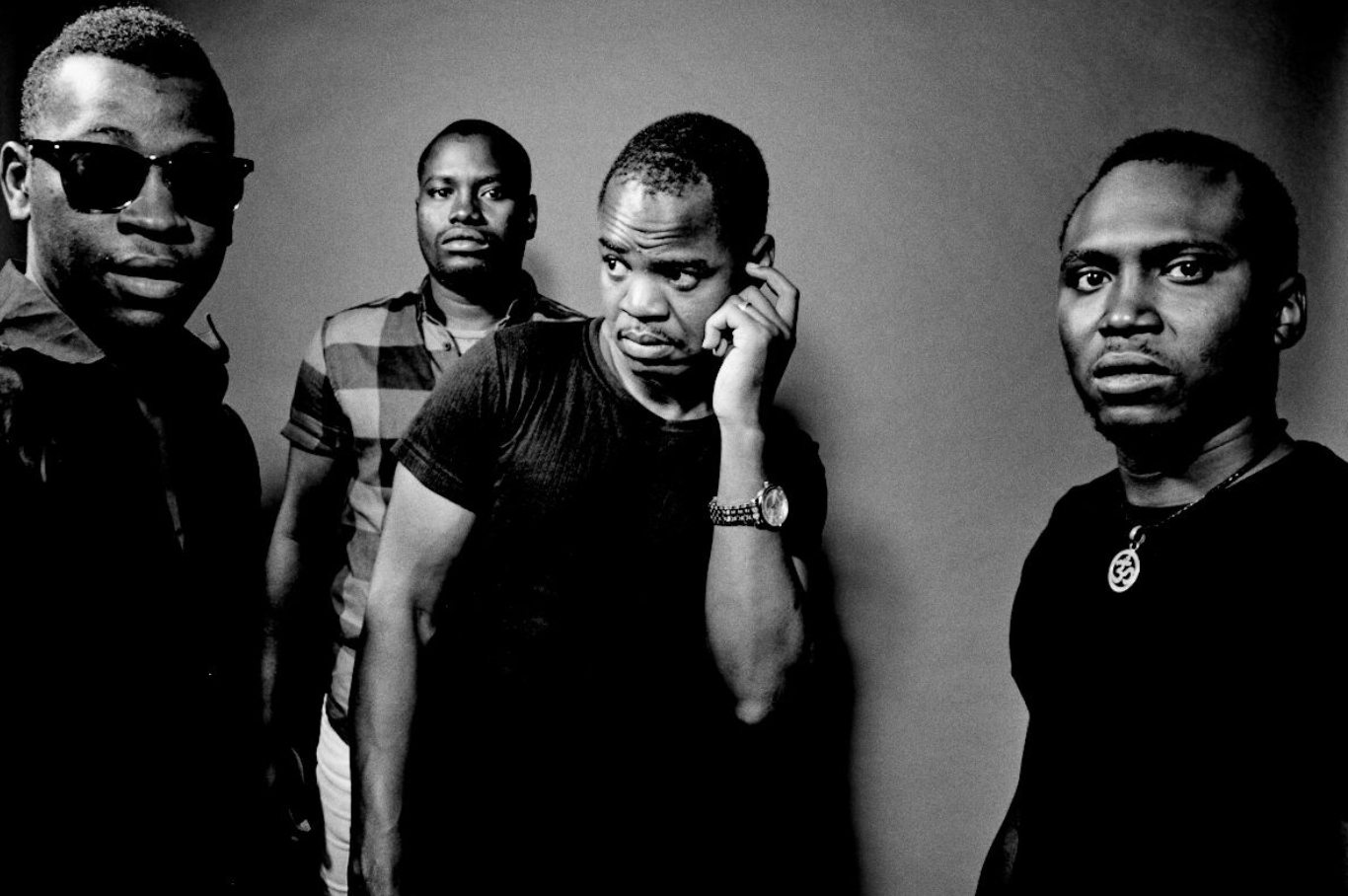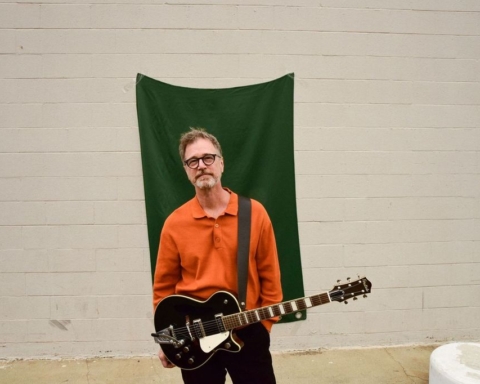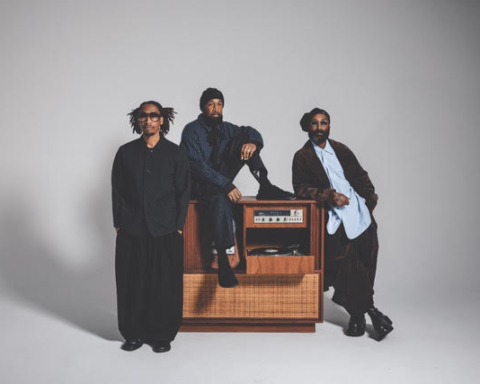Songhoy Blues is a blues/rock band from Timbuktu, Mali, which formed after Jihadists took over their homes and imposed Sharia law that included a ban on all forms of music. Since leaving the homeland, the quartet has released the critically-acclaimed Music in Exile and just recently released a new LP entitled, Résistance, which Rolling Stone calls one of the best albums of 2017. If that weren’t enough, Kendrick Lamar, Rogers Waters, and Drake have all professed their love of the band. You can get a taste for the music by streaming their new video for “Yersi Yada”, a collaboration with TIDAL and Afropunk, HERE.
Songhoy Blues is currently on tour and will play the legendary San Francisco venue, Bimbo’s 365 Club, on Oct. 20. In preparation for the show, we spoke with Aliou Touré, the band’s lead singer. We talked about what music means to him, what drove him and the rest of the band to leave their country to pursue the art form, and what it’s like to visit the world and be playing in front of people that actually encourage music.
For those not familiar with the group, how would you describe your band and your music?
We are Songhoy Blues from Mali in West Africa. We make music that blends Malian grooves with American blues and punk. For us, it’s all about live performances, and we try and bring joy and energy to every show that we play.
What’s the artistic vision and future goals you have for the band?
We just want to keep playing bigger and better shows and making better records. Every night on tour is a new experience for us, soaking up the music and culture we hear on the road, and hopefully, we bring that to the music we write. More than anything we just want to introduce as many people as possible to Mali music and culture – we see ourselves as cultural ambassadors, bringing a different image of Mali to that which is reported in the news to the masses.

Because of the unstable political climate of where you’re from, you’ve had to flee to pursue music. What drew you to do this?
For us, music is life. We’ve all listened to and played music since we were very young. So when those guys in the North announced there would be a music ban in 2012, there was no question for us that we had to leave. Life without music was not something we were willing to consider. Can you imagine that?
Why did the Jihadists from your country decide to outlaw music?
It wasn’t just music that they banned; they banned football, cigarettes, alcohol, anything they considered wasn’t in line with their interpretation of their religion. I think it was just about control – controlling the way that people lived. Music is such a tool for communication – the Jihadists just didn’t want those messages getting through.
What does music represent in your homeland?
In Mali, music is everything. It’s not just something that brings joy; it’s a way to communicate, to spread the news about what’s going on around us. It brings together people of different backgrounds. Every wedding, social gathering, birthday celebration, it all has music at the center.
You were recently featured in a documentary entitled “They Will Have To Kill Us First: Malian Music In Exile.” What would you like viewers to take away from this film?
Hope. More than anything else. For us and the other musicians featured in the documentary, the situation in Mali when we started the band seemed hopeless, but I think our story and the story of the other musicians in the film shows that great things can come from even the darkest situations.
How would explain what the situation is like in Mali for people who are unaware?
I think a lot of things have improved since the problems of 2012, and life for us in Bamako in the south is as good now as it’s ever been. I think a lot of the press that comes out about Sub-Saharan Africa is the same, negative stories about violence and war but that’s really only a small part of the story. Today there’s violence everywhere from Paris and London to North America. Mali is no different. There are problems but a lot of the time it’s good, we have amazing clubs, incredible music everywhere, it’s a beautiful city to just hang out with friends, drink tea and be happy.
In the North, the Jihadists were kicked out by the French Army after the initial problems in 2012 but they’re not completely gone, they’re still there just hiding away, and from time to time there are problems. But most of the time it’s just the most beautiful place in the world for us, and we try and go back to see our families as much as possible when we’re not on tour.
What has it been like to travel to other parts of the world where music is not only allowed but encouraged and appreciated?
I think because music has always been so important to us, it’s not been surprising to find places where other people love music just as much. What’s been inspiring is finding so many people open to music that might feel unfamiliar to them, to find so many people falling in love with Malian music, dancing and singing to our music. We haven’t been to a place yet where we felt people weren’t open to hearing something new.
We’ve been very lucky to travel the world and soak up new music everywhere we go to. I think you can hear that in our new album. We wanted to incorporate a lot more of those influences into the music we recorded for Résistance, so there’s elements of funk, hip-hop, grime, R&B, and soul in there. It felt like a step forward from our first album.
What are some of the most popular genres of music in Mali today? In an article, you were quoted as saying it’s “the birthplace of blues and rock ‘n’ roll.” Can you elaborate on that?
A couple of weeks ago we were in the studio recording some new music and someone from our US label Fat Possum played us a track called “Meet Me In The City” by an artist called Junior Kimbrough from Mississippi in the US. For us it was a shock to hear it for the first time because it felt so familiar, it could easily have been a track by Ali Farka Toure. I think a lot of the influences on blues come from West Africa, those rhythms, and the cyclical riffs so for us it’s always felt natural to blend Malian rhythms with the blues sound.
Apart from that, hip-hop and pop are really big in Mali. It’s not as disconnected as I think a lot of people think, everyone finds music on YouTube, they have access to as much music as anyone else.
You are playing San Francisco in a couple of weeks. What are you most looking forward to most about playing here?
We played in San Francisco in April last year and had such a fantastic time. We found that the audience in San Francisco has just as much energy as we like to put into our performances, and we feed off of that. If a crowd has energy, it makes us want to give more back to make it a fantastic show. We don’t get out to North America as much as we’d like so we want to make sure we give people a show to remember.
Songhoy Blues and Mike Henderson play Bimbo’s 365 on Oct. 20, 2017 – Doors: 8:00 pm / Show: 9:00 pm – $25.00
Photos courtesy of Blake Zidell & Associates






